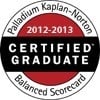Unraveling the Mystery: Data Quality vs. Data Governance
Introduction:
In the ever-evolving world of data-driven decision making, two terms that often get thrown around are "data quality" and "data governance." While they may sound similar, they actually refer to two distinct concepts that play crucial roles in ensuring the accuracy, reliability, and security of your organization's data. In this blog post, we'll take a closer look at the difference between data quality and data governance, and why understanding these concepts is vital for any data-driven organization.
Data Quality: The Foundation of Trustworthy Data
When we talk about data quality, we're referring to the overall accuracy, completeness, and consistency of the data. In simpler terms, data quality is all about ensuring that the information you rely on is reliable and fit for its intended purpose.
Data quality encompasses various dimensions, including:
- Accuracy: Is the data free from errors, inconsistencies, and duplications?
- Completeness: Does the data include all the necessary information required for analysis or decision-making?
- Consistency: Is the data consistent across different sources, systems, and timeframes?
- Timeliness: Is the data up-to-date and reflective of the current reality?
- Relevance: Does the data align with the specific needs and objectives of the organization?
Data Governance: The Guardian of Data Assets
While data quality deals with the content and accuracy of data, data governance focuses on the processes, policies, and guidelines that ensure the proper management and utilization of data within an organization.
Data governance involves:
- Data Ownership: Establishing clear roles and responsibilities for data management, including defining data stewards and data custodians.
- Data Policies: Creating a set of rules and standards that govern the collection, storage, usage, and sharing of data.
- Data Security: Implementing measures to protect data from unauthorized access, breaches, or loss.
- Data Privacy: Ensuring compliance with applicable data protection regulations and safeguarding sensitive or personal information.
- Data Lifecycle Management: Defining procedures for data creation, storage, archiving, and eventual disposal.
The Synergy between Data Quality and Data Governance:
Now that we understand the distinction between data quality and data governance, let's explore how they complement each other.
Data governance provides the structure and framework necessary to establish data quality standards and enforce them across the organization. It ensures that data is collected, stored, and managed in a consistent and secure manner. On the other hand, data quality initiatives rely on data governance practices to implement and monitor data quality standards effectively.
Conclusion:
Data quality and data governance may have different focuses, but they are interconnected and crucial components of any data-driven organization. While data quality ensures the reliability and accuracy of data, data governance establishes the rules and processes to manage and protect that data effectively.
By understanding the difference between data quality and data governance, organizations can develop comprehensive strategies that ensure trustworthy and actionable data. So, whether you're a data analyst, a business leader, or simply curious about the world of data, remember that these two concepts go hand in hand, empowering you to harness the true potential of your data assets.
Data Governance Buy-In
Now that you know the difference between Data Quality vs Data Governance, you might want to grab a copy of our Data Governance Buy-In Checklist.



